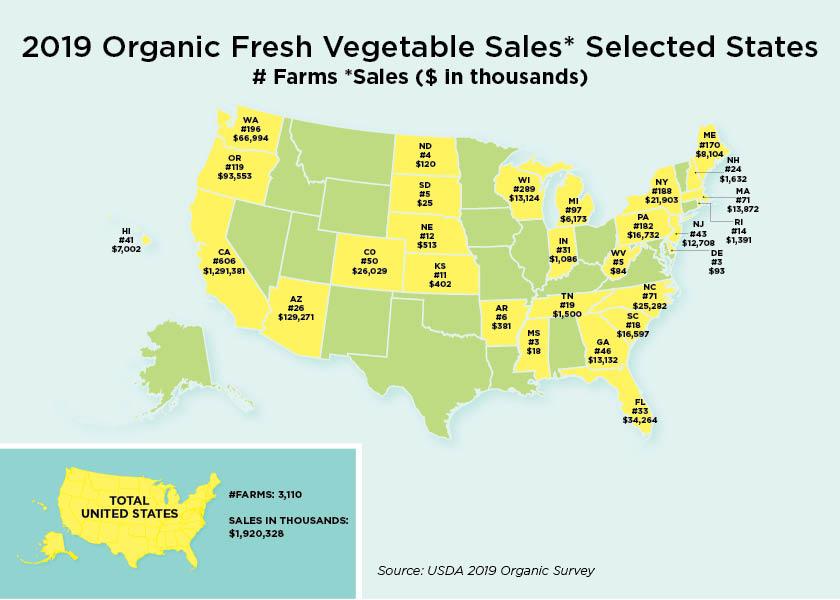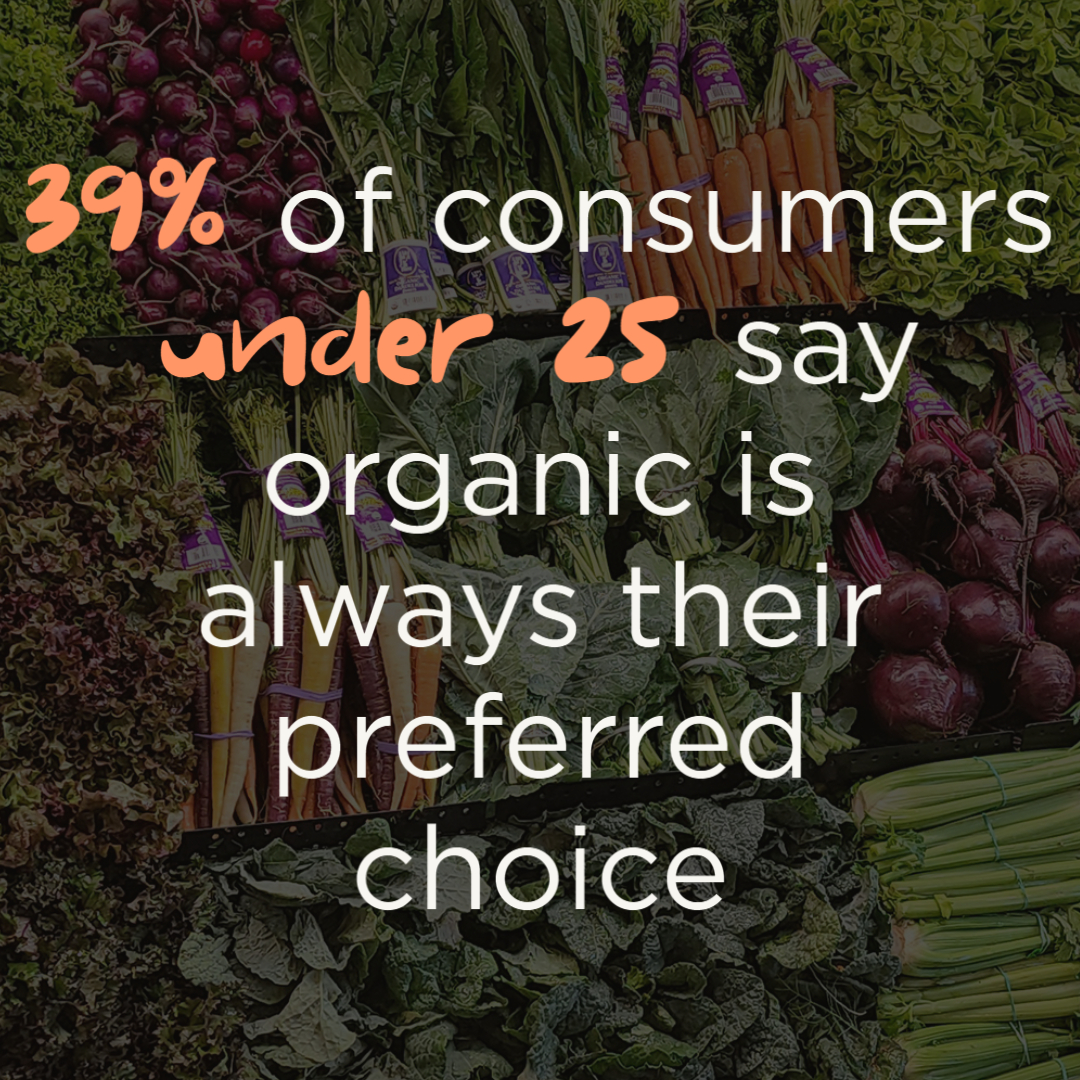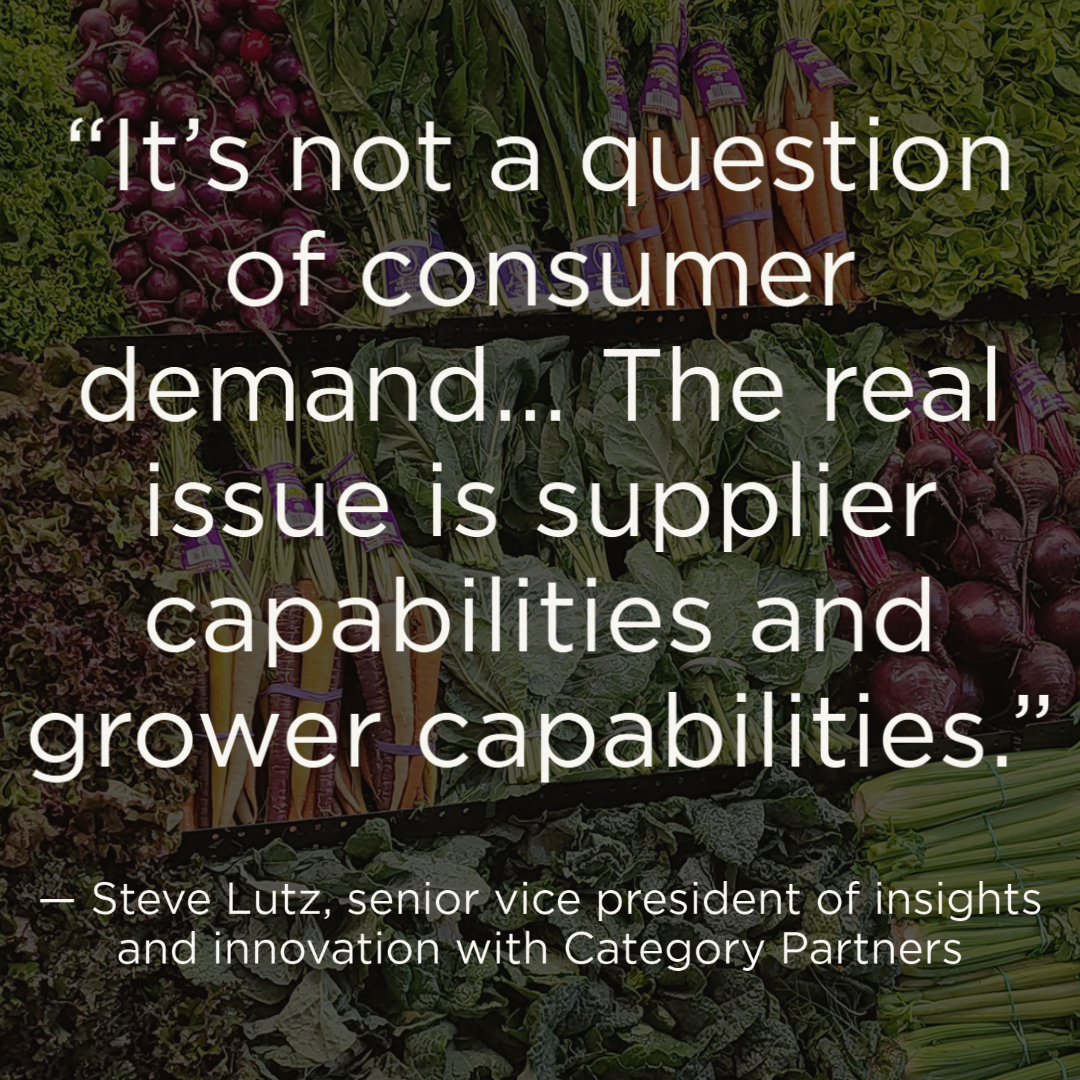Organic produce market to grow up to 10% in 2022

With younger consumers driving growth, the organic produce sector will likely experience 5% to 10% growth in sales dollars in 2022, according to Mike Mauti, managing partner of Canada-based Execulytics Consulting.
That growth will largely be driven by those under 25 increasing their purchasing power, he said.
“That’s the biggest, most powerful component in the organic movement,” Mauti said.
Steve Lutz, senior vice president of insights and innovation with Idaho Falls, Idaho-based Category Partners, said increased product availability and the narrowing price gap between organic and conventional produce items is also driving the market. He said this price gap has gradually narrowed over time due to increased product availability, and this will continue to put downward pressure on prices in the future.
Illustrating the interest of Generation Z in organics, a recent Execulytics Consulting survey of 5,000 Canadian grocery shoppers found 39%

of consumers under 25 say organic is always their preferred choice or that they only buy organic products. This compares with 25% of those over 25 saying the same.
Mauti said this survey also showed consumers under 25 have demonstrated an interest in more exotic products including mangoes, limes and Asian vegetables, and this could provide a growth opportunity for such products. At the same time, they have purchased fewer bananas, apples, potatoes and strawberries than their older counterparts. He said while this younger age group is not fully in the marketplace yet, they will increase their purchasing power and thus drive growth of organic produce in the future.
Mauti said during the pandemic, consumers gravitated toward products they perceived as providing a safer way to obtain food naturally, and this positively affected the organic market.
“There is going to be a lasting impact from this flight to safety,” Mauti said.
This perception of safety also gave a boost to packaged produce products, according to Lutz.
In the past, retailers have been focused on the number of unique items they carry, but the current labor shortage has put pressure on those offerings, which in turn has affected the number of unique organic items retailers can offer, Lutz said.
While the organic market has experienced double-digit growth in the past, that growth has slowed, prompting Craig Carlson, president and CEO of Chicago-based Carlson Produce Consulting, to say the category is maturing.
“The organic category is starting to establish itself and act like a mature category,” he said.
Nevertheless, Carlson said the growth of indoor farming will boost the segment, and he said there is significant opportunity for indoor farming to grow. He said the availability of product on a 52-week basis will be key to driving growth of specific items including blueberries. He said with this increased availability the market could get a boost from items that aren’t typically the highest drivers of sales.
Lutz said unique salad blends coming out of urban greenhouse environments will drive growth as consumers are discovering those products, and they come with a higher retail price point.
During the third quarter of 2021, total organic sales dollars increased by 3.4% compared with the same quarter of the previous year, according to the Organic Produce Network, Category Partners and Nielsen. This compared with a third quarter of 2020 that was influenced by pandemic-driven shopping. Conventional produce dollars increased by 1.3% in comparison. Berries, apples and packaged salads accounted for 85% of all organic fresh produce dollar growth during the third quarter. Berries specifically grew in sales dollars by 11% during the quarter.

Lutz said in the future the growth of the segment will not be limited by demand but by supply. He said when consumers are surveyed, they indicate they believe organic produce is superior in every way, indicating a larger share of consumers will act on that preference as more options become more affordable.
“It’s not a question of consumer demand,” Lutz said. “The real issue is supplier capabilities and grower capabilities.”
During the third quarter of 2021, organic produce represented 12% of the total produce market in the U.S. Lutz said it is conceivable the organic segment could gain another 10 percentage points of growth over the next 10 years.







